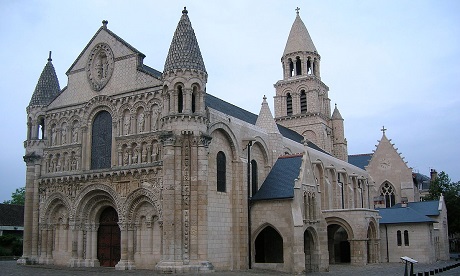Fewer resources, a lack of priests and merging dioceses are upsetting French Catholic communities in rural areas.
Talk of reducing the number of dioceses in country districts is met with hostility from clergy and Catholic faithful alike, who see it as a “view from Paris”.
Nonetheless, many wonder if the country’s 100 dioceses aren’t too many, given the serious priest shortage.
Merging those that are poor in terms of human and financial resources is considered “out of the question,” by clergy as disparate as a priest from a small southwestern French diocese and the Archbishop-emeritus of Rouen.
The resistance is mainly about the distance people will have to travel to receive the sacraments.
In the dioceses of Bourges, Poitiers and Strasbourg, for example, the priests and lay people often complain about the distances they have to travel for meetings which cannot all be held at the diocesan center.
“The question is what’s the appropriate size for a diocese,” asks the Director of the Higher Institute of Ecumenical Studies at the Institut Catholique in Paris.
While Italy has some “enormous” dioceses, such as Milan or Turin, there are also many other “tiny” ones, he notes.
One reason people don’t want to change the status quo is because of their personal attachment to their diocese and its history.
Many of those who are living in merged dioceses – for instance three that were merged over half a century ago – remain disappointed, despite there being three distinct diocesan associations.
Christoph Theobald SJ explains:”Our churches in the West, like our societies, are in a process of bureaucratization”.
He stresses the importance of avoiding any regrouping that would increase the risk of a “vertical schism” between “neglected” faithful and a “distant” ecclesial government.
Despite the various concerns from France’s clergy and faithful, the French Bishops’ Conference (CEF) is reflecting on the future of some dioceses.
They are particularly concerned about the ones that no longer have the resources to support a full administrative apparatus or curia and those that have difficulties in finding priests or lay leaders to cover all the pastoral duties.
“It is a question that we will have to face, without rushing, but trying to be pragmatic,” says one bishop.
Another says it would not be “a question of merging, but of appointing a bishop who would be in charge of two dioceses”.
One of the places that opposes any regrouping or merger has only 27 active priests, half of whom are foreigners.
It is refusing efforts to be regrouped with the neighboring diocese, but – as is the case with several other dioceses, is happy to collaborate.
The two dioceses already have joint training and formation programs, especially for catechists.
Some provinces are encouraging their priests to work in inter-diocesan fraternities and to change dioceses for a few years.
“It is up to the metropolitan archdioceses to support the smaller dioceses,” a bishop-emeritus says.
Source
Additional readingNews category: World.




